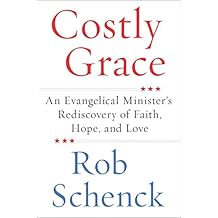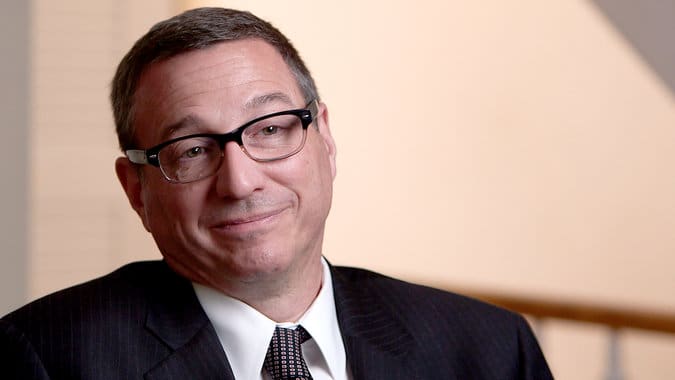During a time when there has been unprecedented concern about the support of religious leaders for political figures, a timely new memoir appears from one of America’s most influential religious leaders and a spiritual counselor to some of the country’s high-profile policymakers. Rob Schenck has spent decades in the spotlight at the epicenter of faith and politics, but several years ago, he stepped back to assess the spiritual cost of his involvement in politics. Long a polarizing figure revered and reviled in equal measure, this man of God has an indisputably compelling story to tell with a special message for our troubled times.
In his timely new memoir, Costly Grace: An Evangelical Minister’s Rediscovery of Faith, Hope, and Love (Harper, $26.99), Schenck recounts his three conversions, from nominal Judaism to right-wing Christianity to pro-gun control activism sparked by a return to the fundamental tenets of the gospel. This deeply introspective account offers a revealing glimpse of a remarkable life and a highly controversial career, while also providing an invaluable lens through which to view the phenomenon of evangelical support for Donald Trump and his presidency.

Along with his twin brother, Schenck converted from Judaism to Christianity as a teenager in the ’70s. Public ministry became his passion and his purpose. In the ’80s, he helped shape and lead the national anti-abortion movement Operation Rescue and emerged as an aggressive presence on the front lines of the anti-abortion crusade, resulting in numerous arrests and a stint in jail. Later he helped then Chief Justice of Alabama Roy Moore install a monument of the Ten Commandments in the state’s judicial building and did jail time defending it against a court-ordered removal. He enjoyed a swift rise to national political prominence. The ambitious outsider quickly became a powerful fixture embedded in the GOP establishment, serving as advisor and minister to the D.C. elite in what was a heady and personally gratifying trajectory.
Yet, despite fulfilling his dream of shaping the conservative agenda in significant ways, Schenck experienced a profound spiritual crisis several years ago. His participation in a documentary about evangelical attitudes towards guns and lethal self-defense—as well as his immersion in the work of Dietrich Bonhoeffer, a World War II-era German pastor and Nazi resister—instigated a dramatic and often painful reckoning with his conscience, resulting in his most radical transformation of all. Taking responsibility for his part in allowing the sacred to be coopted by the secular and for veering from the humble and biblical path, he recommitted fully to Jesus’ teachings. His mission now, undertaken with an open heart and a contemplative mind: to liberate the evangelical community from the oppression of a politicized gospel, and to urge Washington conservatives to forsake the politics of hate, fear, and violence.

With candor and unflinching self-scrutiny, Schenck opens up about a range of incendiary topics including:
- His perspective on the NRA, the Second Amendment, and the specific measures he advocates in his calls for stricter gun control;
- Where he stands on the issue of abortion rights today;
- Why he did not vote for Donald Trump and his take on the 45th president;
- His current attitude about those he has condemned in the past, from women seeking abortions to Democrats to LGBTQ people;
- How his beliefs about homosexuality and same-sex marriage have taken a uniquely principled perspective—in surprising ways.
As he reflects on his extraordinary journey—from his early commitment to God to his ego-driven deviation from his values to his redemptive reclamation of the gospel’s core principles—the Rob Schenck illuminated in these pages is very human, universally relatable, and altogether inspirational.
